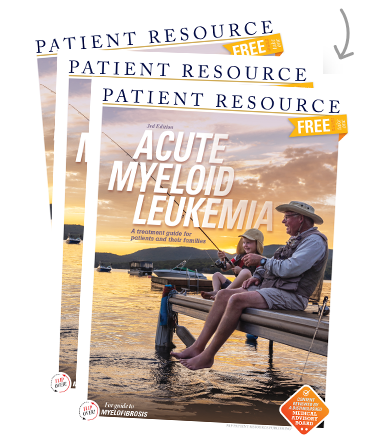Acute Myeloid Leukemia
Pediatric AML

Moving forward after your child receives an AML diagnosis will feel more manageable if you take advantage of the support options available. Members of your child’s medical care team, advocacy groups and other families whose lives have been affected by AML can help you navigate what seems like an impossible road ahead. These suggestions may also help.
Help for parents: You may feel overwhelmed and ill-equipped to manage such a serious medical condition and worry about how all the aspects of your lives will be affected. Learn all you can about your child’s diagnosis, and try your best to focus on the now.
Draw on the experience of your child’s nurse navigator and medical team to provide guidance, education and training. Pharmacists are another trusted source who can offer guidance on safely handling and dispensing your child’s medications and managing side effects.
Keep your family routine as close as you can to what it was before. Consistency helps everyone feel as normal as possible.
Find an outlet for your feelings. Consider sharing your concerns with a therapist, social worker, member of your spiritual community or pediatric AML support group.
Help for your child: Enlist the aid of your child’s nurse navigator, a psychologist, social worker or child-life specialist to explain AML and its treatment to your child. They will make the discussion age-appropriate to ensure the right information is shared.
Be honest with your child about hair loss. Chemotherapy is often part of AML treatment, so think about hats, caps and wigs. Be aware that losing their hair may be very upsetting. The social worker or child-life specialist on your child’s medical team can offer support and resources for dealing with hair loss.
Help for siblings: It is important to recognize they may be feeling the same fear, anger and stress as you. Help them cope by reminding them that you’re there for them. Assure them their feelings are valid. Continue to parent, love and discipline as you normally would. Again, consistency is key.
Help for friends: Encourage your child to keep up with friendships. They may be extra fatigued, which may prevent them from picking up with their social activities as quickly as you might expect. If in-person visits are an infection risk, encourage kids to connect through video games, social media and by phone.



